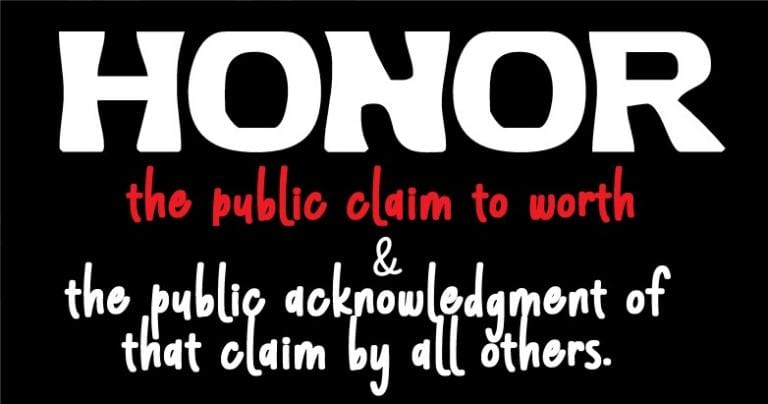
Persistence has nothing to do with the parable inappropriately titled, “The Persistent Widow,” a story better thought of as, “The Shameless Judge Gets Shamed.”
Persistence aptly describes culturally uninformed Western Bible translators and their continued ethnocentric blunders in rendering the Mediterranean Scriptures into English. They persist in ethnocentrically distorting what our Biblical ancestors in the faith were trying to communicate. Earlier, we saw how “persistence” was ill-used to describe the host in the Lukan parable who asks his friend for bread in dead of night.
This Sunday’s Gospel, Luke 18:1-8, offers us yet another opportunity to see our mistaken Western notions at work. We like persistence in this culture, working hard until the job gets done. Although it may chime with United States values, the popular name given to the parable, “The Persistent Widow,” actually distorts what the story is really about. Thanks to culturally-informed (i.e., culturally respectful) critical scholarship (via scholars like Bruce Malina, John Pilch, and Richard Rohrbaugh), we can render proper translations and arrive at respectful readings.
Persistence in Ethnocentrism
Popular Catholic speaker Scott Hahn insists that this story is about persistence in prayer. See this here. His chum Marcellino D’Ambrosio agrees, claiming that the story is about boldness and persistence in prayer. Bishop Robert Barron agrees as well—to him, not only is this story about persistence in prayer, but that the divine command to be persistent prayerfully is found everywhere in Scripture. Examples of this common view can be found here, here, and also here.
Western Christians like American believers have been enculturated to Western social values, instrumental activism and extreme individualism. Persistence sings to our lionizing hard workers along these treasured values. To see our real beliefs, look to our trinity of sports. Individual accomplishment and working hard keeps our psychological guilt away. We are all of us, more or less, similar to American oil man Daniel Plainview in THERE WILL BE BLOOD. He valued persistence also.
We Westerners, even Catholics living in the United States, are missing a key cultural understanding and sensitivity essential to grasping this Gospel story. Our Western individualism acts as a blindfold, blotting out a key element to this story. Our desire to accomplish and win affects how we read passages on prayer.
Persistence in Misunderstanding the Widow
What exactly does being a Biblical widow mean? The Mediterranean world of the Bible was patriarchal. Just as the Middle East is today, the world of the Gospels was intensely gender-divided. Americans who have no qualms sitting down next to strangers of the opposite sex in movie theatres and sports arenas have a difficult time realizing that such behavior would be inconceivable to our Biblical Ancestors.
The outside, public world—generally speaking—was the domain of men. The inside, domestic world, was the place of women. But don’t believe that these women, the intelligentsia of their villages, were powerless. On the contrary, theirs could be, at times, even a lethal power. In fact, women were thought of by Biblical males in similar ways as we Westerners see WMDs—deadly in the wrong hands. In dread, Mediterranean males sought to contain these deadly women.
Since in this world only males have a public role, traditional Middle Eastern women do not speak for themselves. Rather the male she in whom she is embedded is her voice. Therefore, should a wife lose her husband to death, she has no spokesman, and becomes one of the most vulnerable in this ancient society. Hence, “widow” in Hebrew connotes “silent one” or “one unable to speak.”
Silent, Desperate & Alone
Because of this, the early Jesus groups were deeply concerned about the care of widows. The first Jesus groups were Israelite groups. Hebrew laws excluded widows from inheritance. Therefore, the widow or “silent one” easily became a symbol for the marginalized, poor, exploited, and oppressed. That the prophets condemned their abuse (Isaiah 1:23; 10:2; Malachi 3:5) and warned of them being protected by the God of Israel (Jeremiah 49:11; Psalm 68:5; James 1:27) speaks volumes about their plight.
In the Lukan parable of this Sunday’s Gospel the widow is utterly alone. We can assume she has no male kin as women do not usually appear in the courts of this culture. She is in a horrific condition worse than death—bereft of all male kin to voice her honor and justice. Everything valued in her society has been taken from her. In the collectivistic world of Biblical Israel, she is desperate. In many ways, she is worse off than Job.
Persistence at Shamelessness
Wonderful relief and care would be provided for the widow by an Israelite judge who observed Torah (Deuteronomy 10:18; 14:29; 16:11) Such a judge would know well that failing to do justice for the widow brings a curse (Deuteronomy 27:19). As a side note, it’s astonishing that U.S. Bible-thumping, Bible-literalists who call themselves “Bible Christians” don’t find these last few passages bone-chilling, huh?
Sadly, there seem to be no just judges in the world of Jesus (as with a great many American Christians these days). These retainers for the greedy elites were corrupt and shameless. The anonymous author we call “Luke” brings this home to his readers by employing his stock character of the local magistrate (Luke 12:14, 57-59; Acts 18:15). This character is “shameless” (18:2)—the NABRE says he does not respect any human being, but the correct rendering is “shameless” (μὴ ἐντρεπόμενος). He even admits this himself (18:4, cf. Jeremiah 8:12)!

You cannot understand this story if you do not understand the Mediterranean values of honor and shame. As we have stressed before, honor is a public claim to worth and the public’s acknowledgement of that worth. Honor and shame are public realities.
Hellish Persistence
In the Mediterranean world of the Bible people can “be shamed.” This means that they have lost honor in the always-watching public eye. Being shamed is shame in the negative sense.
American fundamentalists stress the agony of hell based on New Testament passages about getting “thrown into outer darkness, where there will be weeping and gnashing of teeth” (Matthew 8:12; 13:42; 13:50; 22:12-13; 24:51; 25:30; Luke 13:28; see Acts 7:54), imagining it to be agonizing. But what these passages primarily describe is the response people give when dishonored or shamed, always public.
Good Shame, Bad Shamelessness
Biblically speaking, not all shame is negative, however. Indeed, one ought to “have shame!” That is to say, Israelites ought to care about their own honor and the ingroup/family reputation, and therefore have a SENSE of shame. Therefore in the Bible, one ought to be sensitive in this way to other people’s opinions. This is shame in the positive sense.
Here is why the judge in the Gospel story is called “shameless.” The late Bruce Malina offers a contemporary view of shamelessness in what he calls the core value and national virtue of the apartheid state Israel—namely “chutzpah.” Malina corrects the usual mistaken translation of this word (arrogance) by giving its proper rendering: shamelessness. In the same way, the magistrate in this Sunday’s Gospel seems to have no concern for honor (cf. Jeremiah 8:12).
Shamelessly Blind Judge
In the honor-shame world of the Bible, being able to perceive status is every bit as crucial as having it! So the shameless must be those who make themselves into fools publicly and are oblivious to it. Prostitutes, innkeepers, ass-drivers, actors, and other disrespected types were thought to be irreversibly shameless. This was because their work screamed to the public that they lacked all sensitivity to honor. Their mere existence threatened to turn into chaos all boundaries in society.
Honor and shame, Van Helsing and Dracula, Batman and Joker, Moby Dick and Ahab—they are inseparable. Not only in the judge in the parable a misfit in Israelite society, being blind to this, he must be a poor and ridiculous excuse for a judge! He doesn’t give a damn how his actions are seen and commented on by the public or their ramifications.
Nobody Got Worn Down
Again, this story has nothing to do with persistence, so don’t read that into the widow who relentlessly “keeps coming” to see this judge. She did not “wear him down.” And more to it, do not imagine her visits to him as being a private, one-on-one deal no one else witnesses. As with the foreign woman who beats Jesus at his own game (Mark 7:24-30; Matthew 15:21-28), and also with the host who wants to borrow bread from his friend in another parable (Luke 11:5-8), this story also presents a grand public spectacle. The unspoken and assumed element that the Lukan audience would not miss is the observing community. They are all watching!
And this is why the judge finally bends and gives in to what the widow wants. Look carefully at Luke 18:4-5—
‘While it is true that I neither fear God nor respect any human being (οὐδε ἄνθρωπον ἐντρέπομαι), because this widow keeps bothering me I shall deliver a just decision for her lest she finally come and strike me’” (ἐρχομένη ὑπωπιάζῃ με).
Irony—The Shameless One Discovers His Shame
Why does this shameless disgrace of a judge relent? Not because he got exhausted by any Western or American “persistence!” He says it is because “she will end up giving me a black eye” (18:5). Borrowed from ancient boxing, the Greek expression figuratively refers to shaming (always publicly) a person. The point is shame, not exhaustion.
The widow goes again and again to shame the shameless judge. At first, big deal!—recall this fool even boasts that he is insensitive to being shamed. But as she continues to badger him daily, creating a spectacle, he realizes he could be destroyed by the gossip network that he allowed this woman to shame him. In Jesus’ day the kangaroo courts had nothing to do with justice but shaming others into the dirt. So he yields to the widow.
Don’t miss the irony, Western Christian readers. The shameless judge admits that even he must have a little (positive) shame! Hence he caves.
What the Story Means
Let’s see how the Lukan Jesus wraps this one up—
Luke 18:6-8
The Lord said, “Pay attention to what the dishonest judge says. Will not God then secure the rights of his chosen ones who call out to him day and night? Will he be slow to answer them? I tell you, he will see to it that justice is done for them speedily. But when the Son of Man comes, will he find faith on earth?”
Here we read the Lukan Jesus giving an application to the parable. The argument is thus: if a helpless widow can receive justice by threatening the honor of a shameless yet powerful judge, how much more will the honorable God of Israel, equipped with the finest sense of shame in existence, be ever-ready to help those petitioners in the Jesus groups? God’s celestial avenger, the Sky Vault Man (“Song of Man” constellation we call Ares), is coming soon. But who will be loyal?
Seen through the Mediterranean eyes of Jesus and “Luke,” God must be immensely sensitive to his honor and its defense! Look over at Ezekiel 36:16-32. God is seen to care less about Israel than his own honor! The God of the New Testament is driven by honor. Certainly God will deliver Israel and all those who belong to him in the Jesus groups rather than risk besmirching his reputation! Inspiration is messy folks, culturally-messy!
Persistence in the Messiness
The Gospels were written by, for, and about ancient Mediterranean Israelites. American believers cannot find direct application within them (key word is DIRECT). But ancient Israelites could readily find this story convincing and reasonable. But not so much us Western 21st century types!
None of this messy business gets helped by unconvincing arguments from Western holy roller types who offer the simplistic drivel to complicated crises—“O God DID answer! He said NO!”
This pious “God said NO!” fluff does not square with the collectivistic, group-centered, honor-driven world of the Bible. Reading this Gospel story fairly shows that God’s honor is on the line! Remember that honor is always a publicly witnessed reality. But Americans and other Westerners are oriented to individualism, which turns faith into a private, vertical thing, with individualistic prayers said in private.
It’s a different world in this story! The widow petitions in public and the shameless judge, who had a tiny modicum of sensitivity to shame, relented to save himself from ruin. He caved due to the group pressuring him.
We Western types, on the other hand, disregard the value of groups. We can go to God ourselves, right! I don’t need any group! All I need is Jesus (and Jesus = God in some kind of Christomonism). We really need to grapple with this widow more.












